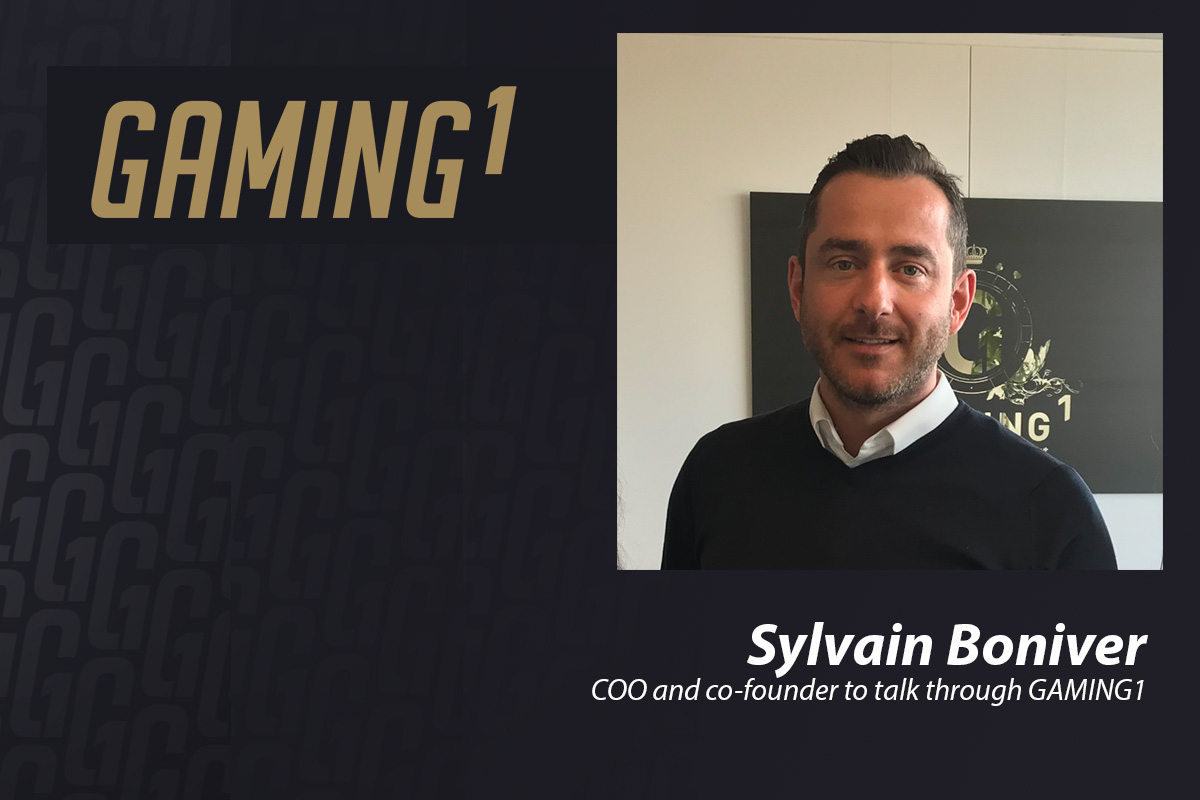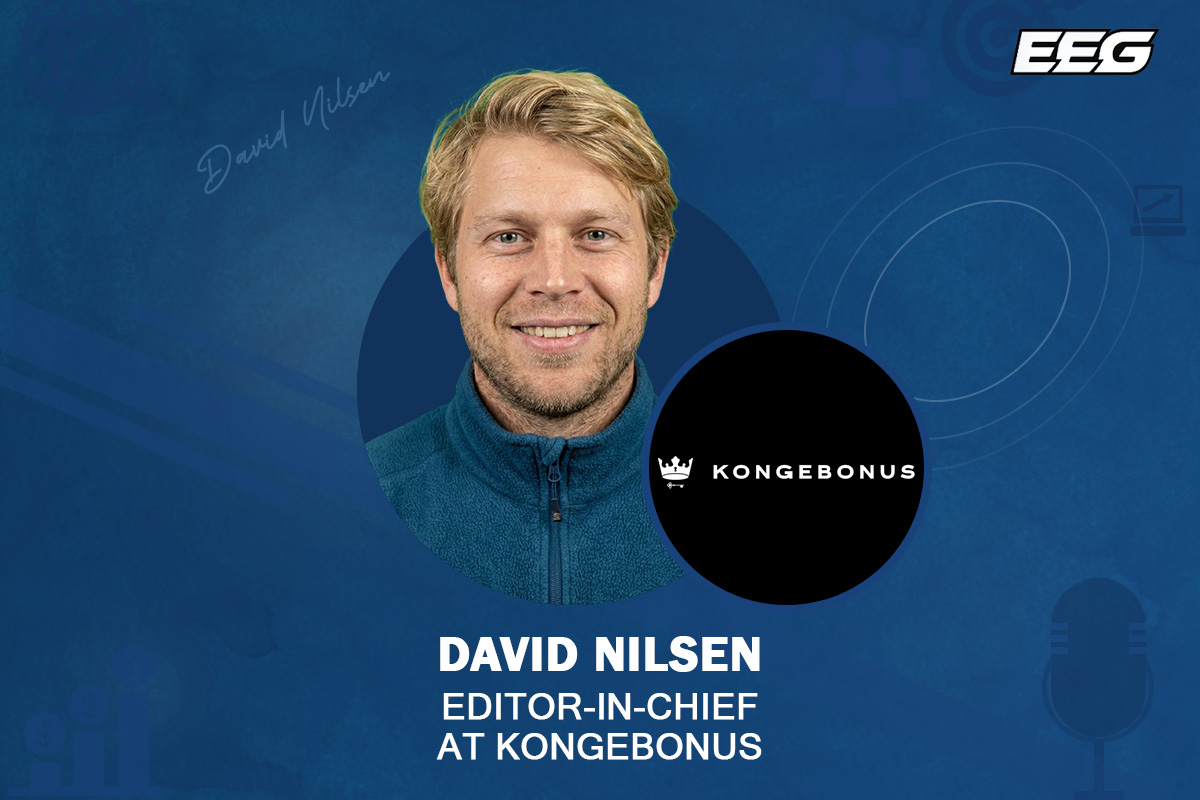Interviews
Exclusive interview with GAMING1: “Our online operations in Belgium have grown beyond all expectations”

Belgian omni-channel expert GAMING1 has proven itself as a worthy partner during the pandemic, especially when it comes to transitioning operators’ offline operations to online. We sat down with Sylvain Boniver, COO and co-founder to talk through GAMING1’s market outlook for Europe over the coming months – this one’s not to be missed!
GAMING1’s services were certainly in demand during 2020 as land-based operators sought to establish their presence online – can you give us a quick snapshot of what that’s looked like?
The outbreak of Covid-19 has accelerated the transition online for most businesses, and that includes the gambling industry. For us, helping partners navigate the unprecedented circumstances caused by the pandemic was priority number one.
Lockdown restrictions forced land-based casinos to shut up shop, and even in countries where they’ve reopened, visitor numbers remain a long way off their pre-pandemic levels. The longer outlets wait to go digital, the greater the loss of their market share – it really is that simple.
Fortunately, our model is designed to help facilitate that shift, allowing players to continue using their favourite brand in an online format. We help retail and land-based partners digitise their operations – a service which, for many, is urgently necessitated by the current situation, and we’re here to deliver.
How has the last year changed the European landscape? Comparing to the way the market looked last January, how much would say has shifted in terms of growth and expectations?
The widespread closure of land-based establishments has underlined the imperative for operators to expand their digital activities. Our partners have enjoyed tremendous success when it comes to re-directing offline customers online, thereby curbing the financial impact of the pandemic.
Self-evidently, operators without an online outlet are struggling to succeed right now. Those who have a synergised land-based and digital offering, on the other hand, are much better equipped to weather the storm that is sweeping the global economy. For those in the former category, our company is ready and waiting to help deliver an omnichannel experience to their players.
Where has growth been particularly strong for GAMING1 on the continent? Where should our readers be looking at for potential expansion?
Our online operations in Belgium have grown beyond expectations. Of course, that can partially be attributed to the Covid-induced shift of all land-based activities to the online sphere. But it also reflects the sky-high quality of our digital products, and the operational efficiency of which we are so proud.
In addition, our status as a Portuguese market-leader remains undisputed, with valued local partners Estoril continuing to grow at an impressive rate. Our Iberian reach has also expanded in Spain, with 777.ES going from strength to strength by outperforming the competition – a pattern which we are confident will continue in the year to come.
Your home markets are very much across Belgium and France – do you see the current French approach to online gaming changing anytime soon?
There’s a world of difference between the two markets. Looking at regulation, in Belgium you must own a land-based casino to open a betting shop, and there is a €500 weekly deposit limit in place. Neither of those rules apply in the French market – and yet, France is still the more restrictive of the two.
French laws prohibit the existence of any private sector in the entire gambling industry, except for land-based casinos. Little wonder, then, that the country’s black market is the most significant in Europe. Regulation would not provide an overnight solution, such is the scale of the exposure of unregulated sites. It would, however, be a giant leap in the right direction – not just for France’s gambling industry, but for its players and economy too.
Looking to the year ahead, a lot’s been talked about in terms of engagement and retention, as well as acquisition of land-based players to the online world – what should operators be spending their money on to make that happen?
As a land-based operator, having the right partner by your side is paramount. That’s how to deliver a world-class digital product to players, and marketing your offering in the most effective way possible is paramount.
Beyond the cross-selling acquisition and retention tools that we’ve implemented, my strongest recommendation is to develop a 360o strategy that maximises the synergy between your different channels. Ensuring that staff genuinely buy into your vision is also critical – without them on board, even the best-planned projects won’t get very far.
Last but not least, can you give us a few insights for staying ahead this year? What’s going to be the GAMING1 approach for ensuring your partners can succeed?
We strengthened our senior management team over the course of 2020 with an impressive string of industry heavyweights. Our peerless 50-50 business model, in which we win or lose alongside our partners, continues to reap the rewards, and we’ve got an ambitious set of expansion plans in place. I’m very proud by our hard-earned reputation for excellence, and we’re all very excited for the decade ahead. This is especially the case for the growth of our existing operations in Europe and Colombia, as well as developing markets such as France and Holland. Safe to say, we’re in for another busy year!
Powered by WPeMatico
Central Europe
Powering the Next Generation of Online Casinos: Inside DSTGAMING’s Scalable iGaming Ecosystem

Interview with John Tan, Digital Marketing Analyst at DSTGAMING
Ahead of HIPTHER Prague Summit 2026, we speak with John Tan, Digital Marketing Analyst at DSTGAMING, to explore how their white label, turnkey, crypto-ready platforms, and powerful game aggregation solutions empower operators – from rapid launch and unified game integration to risk management, payments, and next-generation crypto deployment.
From your perspective, what are the biggest operational barriers new casino operators face today – and how does DSTGAMING address them through technology and infrastructure?
New casino operators often underestimate the complexity of launching and sustaining an iGaming operation. Beyond platform development, they face challenges related to licensing alignment, payment integrations, risk management, game provider negotiations, fraud prevention, and ongoing technical maintenance. Each of these components requires expertise, time, and significant capital investment.
DSTGAMING addresses these barriers by delivering a structured, technology-driven ecosystem that consolidates critical operational components into a single, unified infrastructure. Instead of managing multiple vendors and fragmented systems, operators gain access to a centralized platform that integrates game aggregation, payment gateways, compliance-ready frameworks, and backend management tools. This significantly reduces operational friction and allows operators to focus on market growth, branding, and player acquisition rather than technical troubleshooting.
DSTGAMING provides White Label solutions enabling casinos to go live in as little as a few weeks. What operational processes and technical frameworks make such rapid deployment possible?
Rapid deployment is made possible through a pre-configured yet flexible platform architecture. DSTGAMING’s White Label solution is built on a modular infrastructure where essential systems — player management, payment integrations, risk control, reporting dashboards, and game aggregation — are already technically optimized and tested.
Instead of building from scratch, operators plug into an established framework that supports domain setup, branding customization, provider configuration, and payment integration within a structured onboarding workflow. Automated compliance tools, ready-made back-office dashboards, and scalable cloud infrastructure further streamline the process. This approach minimizes development cycles while maintaining operational stability and performance.
The Turnkey solution focuses on full branding flexibility, user-friendly management, and extensive game libraries. How does this differ strategically from White Label in terms of operator control and long-term scalability?
Strategically, the White Label model is ideal for operators seeking speed-to-market with lower upfront investment and reduced technical responsibility. It provides a comprehensive operational framework where much of the infrastructure and maintenance is centrally managed.
The Turnkey solution, however, is designed for operators who require greater autonomy and long-term strategic control. It offers full branding flexibility, deeper system customization, independent licensing alignment, and enhanced scalability options. From a business standpoint, Turnkey allows operators to build their own technology identity while retaining access to DSTGAMING’s infrastructure backbone. This structure supports expansion into multiple jurisdictions, diversified payment ecosystems, and tailored player engagement strategies over time.
DSTGAMING’s Casino Game Aggregator provides access to more than 10,000 games from 100+ providers – how do you approach game content management, performance consistency, and provider diversity to ensure long-term player engagement?
Managing a large-scale aggregation portfolio requires structured curation rather than simple volume expansion. DSTGAMING focuses on performance analytics, regional player preferences, and technical optimization when onboarding providers.
Game content is continuously monitored for performance indicators such as session duration, retention rates, and conversion metrics. Low-performing titles can be rotated, while trending categories — whether slots, live casino, or crash games — are strategically highlighted. Provider diversity is carefully balanced to include established industry brands alongside emerging studios offering innovative mechanics.
From a technical standpoint, standardized API integration protocols and server optimization ensure latency consistency and stable gameplay across regions. This combination of analytics-driven curation and infrastructure reliability supports sustained player engagement rather than short-term spikes.
DSTGAMING also offers crypto-focused casino deployment. How is cryptocurrency reshaping payment flows, compliance considerations, and global player acquisition strategies?
Cryptocurrency is fundamentally reshaping cross-border transaction efficiency and player accessibility. Traditional payment systems often involve processing delays, regional banking restrictions, and high transaction fees. Crypto payments reduce these friction points by enabling faster settlement, lower costs, and broader global reach.
However, crypto integration also requires structured compliance frameworks. Responsible implementation includes wallet verification systems, AML alignment, transaction monitoring, and jurisdictional risk assessment. DSTGAMING integrates crypto-ready infrastructure within a controlled environment to balance operational efficiency with regulatory awareness.
From a growth perspective, crypto expands access to digitally native audiences and markets where conventional banking infrastructure may limit participation. Operators can position themselves competitively by offering both fiat and digital asset payment options within a secure and scalable ecosystem.
What key iGaming technology or business trends should operators watch most closely heading into 2026?
Heading into 2026, operators should closely monitor three primary areas: infrastructure scalability, payment diversification, and data-driven personalization.
First, scalable cloud-based architectures will become increasingly important as competition intensifies and multi-market expansion accelerates. Second, payment ecosystems will continue diversifying, including alternative payment methods, regional wallets, and cryptocurrency adoption. Third, advanced data analytics and AI-driven personalization will play a central role in player retention, segmentation, and responsible gaming monitoring.
Additionally, regulatory adaptability will remain critical. Operators must design systems that allow compliance updates without disrupting operational continuity.
DSTGAMING is joining the HIPTHER Prague Summit 2026 as the Lanyard Sponsor. What would you like operators and partners to take away from engaging with your team there?
DSTGAMING’s participation at the HIPTHER Prague Summit 2026 as Lanyard Sponsor reflects its long-term commitment to industry collaboration and technological advancement.
At the summit, the objective is not simply to present solutions, but to engage in strategic discussions with operators and partners about sustainable growth models, market expansion strategies, and infrastructure optimization. Visitors should walk away with a clear understanding that DSTGAMING provides more than a platform — it delivers a structured ecosystem designed to support rapid launch, scalable expansion, diversified payments, and long-term operational stability.
The focus remains on building partnerships grounded in technology reliability, strategic flexibility, and measurable business outcomes as the industry moves into its next phase of evolution.
The post Powering the Next Generation of Online Casinos: Inside DSTGAMING’s Scalable iGaming Ecosystem appeared first on Eastern European Gaming | Global iGaming & Tech Intelligence Hub.
AI
Why operators are choosing to buy in their AI strategy

In an industry where margins are thin and player loyalty is fleeting, customer experience has become a key differentiator for operators. As AI becomes a core operational requirement, leadership teams face a clear choice: build proprietary technology in house, or partner with purpose built AI CX providers.
Alex Gould, CTO at Conduet, explains why more operators are choosing the latter.
What industry-specific CX challenges can an exterior solution address ‘out of the box’ compared to a generic build?
Generic AI struggles in sports betting and iGaming because player inquiries are shaped by complex, domain-specific rules and edge cases. Questions about settlements, promotions, withdrawals, or cash outs are rarely straightforward. They depend on wager structure, timing, eligibility criteria, and operator-specific logic.
Over 80% of player inquiries require pulling live, account-specific information from the PAM and applying it correctly within that broader rule set. Without purpose-built logic to interpret both the data and the edge cases around it, responses quickly become incomplete or incorrect.
This limitation is reflected more broadly in enterprise AI adoption. Research from MIT found that 95% of enterprise AI initiatives fail to deliver measurable business impact, often because broadly trained models are pushed into live environments without the domain context needed to handle real-world variability. What appears to work in controlled testing breaks down once exposed to operational complexity.
Purpose-built platforms are designed around this reality. By training on gaming-specific data, workflows, and failure modes, they can interpret live PAM data in context and handle both common and complex inquiries accurately from day one, without relying on extensive rules, manual escalation, or post-deployment patchwork.
How would you characterise the current skills gap within operator teams regarding AI implementation?
Operator CX teams are closest to the customer and understand where friction exists. The challenge is not identifying opportunities, but delivering AI that performs reliably in production. Turning insight into production-ready capability requires technical depth, dedicated ownership, and sustained iteration that sit outside the remit of most CX organisations.
Deploying AI in gaming requires expertise across model evaluation, conversation design, failure handling, and real-time interaction with PAMs and ticketing systems. It also requires ongoing investment to monitor performance, manage edge cases, and improve outcomes as volumes and player behaviour change. CX teams are structured to run day-to-day operations, which makes sustaining this work in parallel difficult.
As a result, many internal AI CX efforts stall or remain narrow in scope, not because the opportunity is unclear, but because the execution burden is too high.
What is the average time to market using a specialist platform, versus a full in-house build?
In-house AI efforts typically take 18 to 36 months to reach enterprise-ready scale. The delay is driven by the need to coordinate across CX, product, data, and engineering while establishing new ownership and operating models inside live CX environments.
A specialist platform compresses this timeline materially. With gameLM, operators can move from concept to live inbound CX in six to 12 weeks. Operators achieve 60%+ resolution within 90 days, scaling toward 80%+ shortly thereafter.
Why does a purpose built partnership model matter in iGaming & OSB CX?
In iGaming and online sports betting, the challenge is not adopting AI, but making it work reliably at scale. Generic platforms often shift the burden onto operators after deployment, requiring significant time and internal effort to adapt the technology to gaming-specific realities. That effort compounds as complexity grows.
A purpose built partnership model changes that dynamic. Instead of operators spending months closing gaps, AI is deployed using operating patterns already proven in live gaming CX. Common failure modes, escalation paths, and performance tradeoffs are understood upfront, reducing the need for downstream rework and ongoing firefighting.
Conduet applies this approach through gameLM, informed by operating a 500+ agent gaming CX organisation. That operating knowledge functions as an embedded R&D capability, shaping how the platform is tuned, prioritised, and extended alongside each operator’s environment. Inbound CX performance today directly informs the development of additional, gaming-specific capabilities such as reactivation, payments optimisation, and fraud prevention.
The result is a partnership model that delivers strong outcomes without transferring the hidden cost of adaptation and maintenance back to the operator, allowing CX capability to keep pace as the industry evolves.
Alex Gould is the CTO at Conduet, where he leverages his technical and strategic background to guide technology strategy and innovation. He is also the Founder and CTO of Everyday AI and previously founded computer vision company ViewX. Alex’s earlier experience includes roles at Primary Venture Partners and Bain & Company, and he holds an MBA from Columbia Business School and a Bachelor of Engineering (Hons) from the University of Canterbury.
The post Why operators are choosing to buy in their AI strategy appeared first on Eastern European Gaming | Global iGaming & Tech Intelligence Hub.
Interviews
Inside the Kongebonus Awards: What Norway’s Players Are Telling the iGaming Industry

As the only iGaming awards originating from Norway, the Kongebonus Awards are decided entirely by open player voting, offering a rare, unfiltered view into what truly resonates with a dedicated gaming community. Kongebonus Editor-in-Chief, David Nilsen, explains how this year’s results reflect shifting player expectations, highlight both emerging and established studios, and contribute to wider industry conversations around quality, innovation and long-term engagement.
The Kongebonus Awards are now in their fourth year. How have you seen them evolve since the first edition?
Since the first edition, the Kongebonus Awards have grown both in reach and in significance. What started as a way to highlight standout games for our Norwegian audience has developed into a recognised annual moment where player sentiment is clearly reflected back to the industry. Each year we see greater engagement from the community and more awareness among studios and suppliers about what the awards represent. The structure has also matured, with categories that better capture the diversity of modern game development. Most importantly, the awards have become a consistent reference point for which games and providers have truly connected with players over the past year, giving the results increasing weight within the wider iGaming conversation.
This year’s awards were presented in connection with ICE Barcelona. How important is it to connect a Norwegian, player-driven initiative with the wider international industry?
Connecting the awards to an international event like ICE Barcelona helps bring local player insight into the global industry spotlight. While the voting comes from Norwegian players, the studios and games involved operate across many markets. Presenting the results in that setting underlines that player preferences in Norway are part of wider trends in iGaming. It also allows international stakeholders to see how a Nordic audience responds to different styles of games, mechanics and themes. That perspective can be valuable for product planning and market strategy.
This year’s winners were decided through open public voting. Why is it important that the results reflect the voice of players so directly?
Having the winners decided through open public voting ensures the results are grounded in real player experience. The recognition comes directly from the people who have spent time with the games, formed opinions and chosen their favourites. That gives the awards a strong sense of authenticity. It moves the focus away from internal industry perspectives and places it firmly with the end users. For studios, this kind of recognition signals that their work has genuinely resonated with players, not just performed well commercially. Player-led results offer a clear and transparent indicator of which games and providers have built lasting appeal, and that makes the outcomes especially meaningful within the industry.
The awards focus not only on commercial performance, but also on quality, innovation and player experience. From this year’s winners, what stood out most to you?
What stood out most was the balance between creativity and accessibility. Players clearly reward innovation, but only when it is paired with strong execution and an enjoyable overall experience. Many of the recognised titles combine distinctive mechanics with clear game identity and smooth gameplay. There is also evidence that consistency matters. Studios that repeatedly deliver engaging, reliable experiences tend to build strong followings, and that loyalty is reflected in the voting.
How do categories such as Rising Star Game Developer and the Readers’ Hall of Fame help ensure the awards spotlight both emerging studios and more established names?
These categories make sure the awards reflect the full spectrum of achievement in the industry. The Rising Star category gives visibility to newer studios that are already making a strong impression with players through innovation and creativity, even if they do not yet have the scale of the largest providers. In contrast, the Readers’ Hall of Fame recognises games that have achieved lasting popularity and become long-term favourites. Including both perspectives shows that excellence is not limited to one stage of growth. It highlights that players value both fresh ideas and proven experiences.
Looking ahead, how do you expect the awards to continue growing, and what role do you see Kongebonus playing in shaping player-led conversations in the industry?
As player expectations continue to change, the awards will develop alongside them. The aim remains to document and highlight the studios and games that genuinely stand out from a player perspective. Over time, this may mean refining categories or exploring new ways to reflect emerging trends, while keeping open voting at the core. Kongebonus will continue to act as a bridge between players and the industry, translating community sentiment into insights that studios and suppliers can learn from. By keeping the focus on player experience and feedback, the awards can play a growing role in encouraging the industry to prioritise quality, innovation and long-term player engagement.
To find out more about this year’s Kongebonus Awards and see the full list of winners, visit: https://www.kongebonus.com/nyheter/vinnere-av-kongebonus-awards-2025/
The post Inside the Kongebonus Awards: What Norway’s Players Are Telling the iGaming Industry appeared first on Eastern European Gaming | Global iGaming & Tech Intelligence Hub.
-

 Blueprint Gaming6 days ago
Blueprint Gaming6 days agoBlueprint Gaming unleashes Frankenstein’s Fortune blending dynamic modifiers with multi-path bonus offering
-

 Compliance Updates7 days ago
Compliance Updates7 days agoHow to Apply for a Finnish iGaming License: Gaming in Finland Webinar on Application Steps and Technical Standards
-

 Big Daddy Gaming7 days ago
Big Daddy Gaming7 days agoBig Daddy Gaming® Expands European Footprint After MGA Licence Approval
-

 Latest News4 days ago
Latest News4 days agoGGBET UA hosts Media Game – an open FC Dynamo Kyiv training session with journalists from sports publications
-

 Compliance Updates6 days ago
Compliance Updates6 days agoMGA Publishes Results of Thematic Review on Self-exclusion Practices in Online Gaming Sector
-

 Amusnet6 days ago
Amusnet6 days agoAmusnet Unveils Casino Engineering and Technology Milestones Achieved in 2025
-

 Brais Pena Chief Strategy Officer at Easygo7 days ago
Brais Pena Chief Strategy Officer at Easygo7 days agoStake Goes Live in Denmark Following Five-Year Licence Approval
-

 Dan Brown6 days ago
Dan Brown6 days agoGames Global and Foxium return to the Colosseum in Rome Fight for Gold the Tiger’s Rage™



















